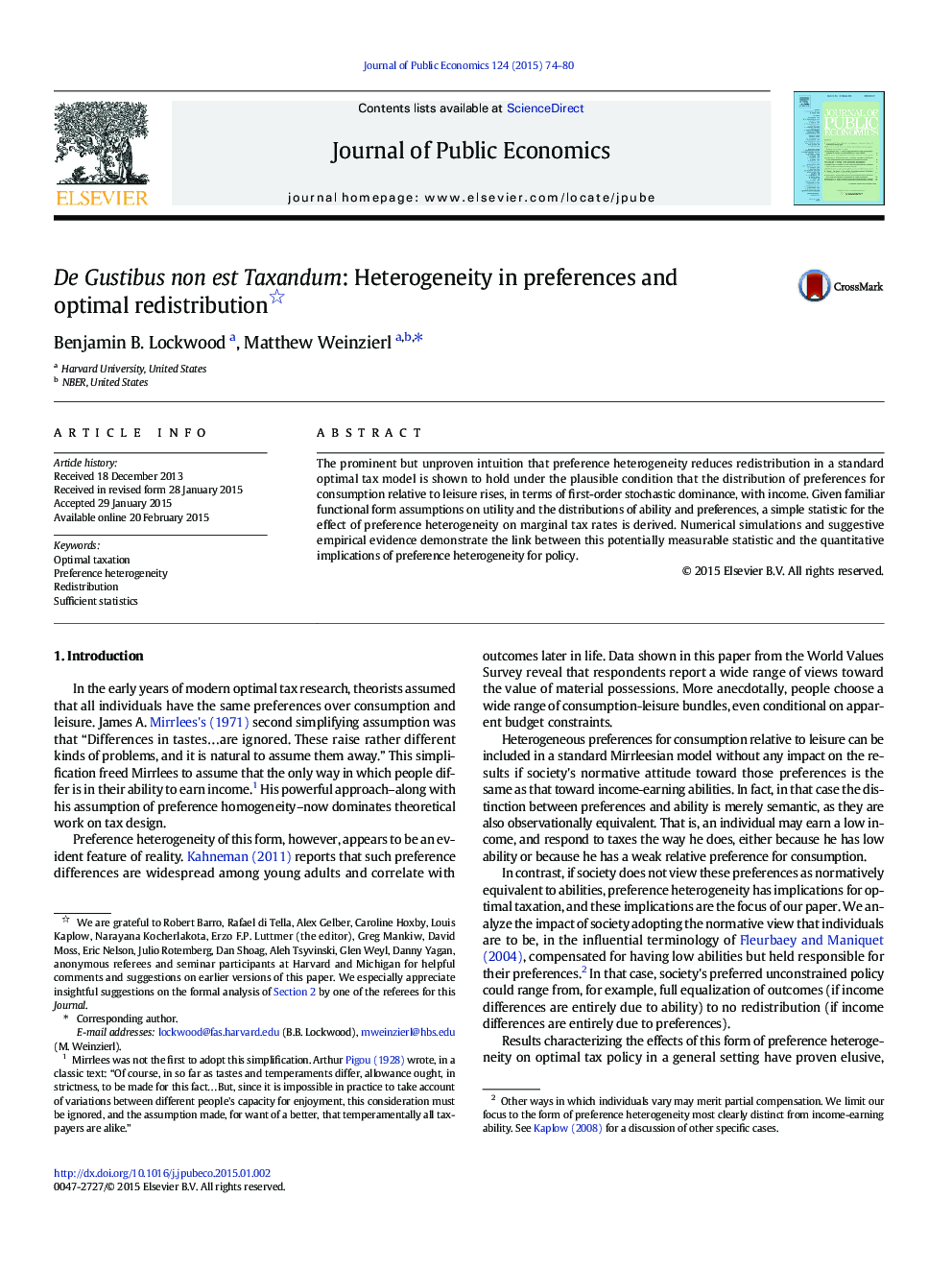| Article ID | Journal | Published Year | Pages | File Type |
|---|---|---|---|---|
| 968788 | Journal of Public Economics | 2015 | 7 Pages |
•Derive sufficient conditions for the prominent intuition that preference heterogeneity reduces optimal redistribution.•Derive a simple, potentially measurable statistic for the effect of preference heterogeneity on marginal tax rates.•Provide simulations and suggestive evidence of the link between this statistic and redistribution across countries.
The prominent but unproven intuition that preference heterogeneity reduces redistribution in a standard optimal tax model is shown to hold under the plausible condition that the distribution of preferences for consumption relative to leisure rises, in terms of first-order stochastic dominance, with income. Given familiar functional form assumptions on utility and the distributions of ability and preferences, a simple statistic for the effect of preference heterogeneity on marginal tax rates is derived. Numerical simulations and suggestive empirical evidence demonstrate the link between this potentially measurable statistic and the quantitative implications of preference heterogeneity for policy.
